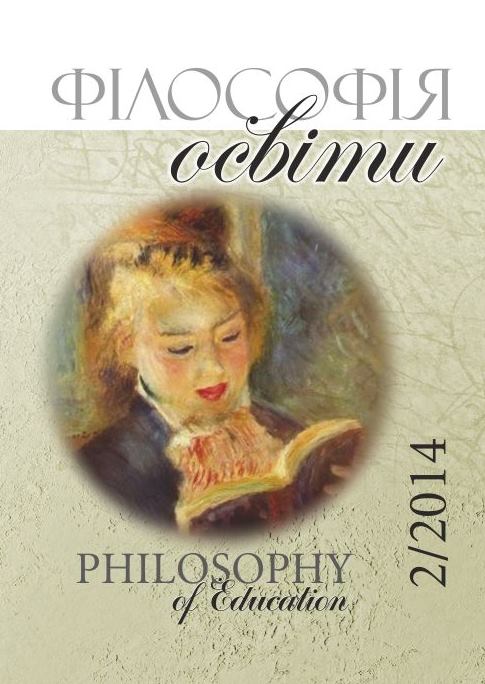Postgraduate Pedagogical Education: an Extensive Modernization and / or Innovative Strategy?
Keywords:
postgraduate pedagogical education, continuing education, idea of lifelong education, extensive modernization, innovative conception, synergetic methodology, state education policy, new type of teacherAbstract
The article deals with problematic and context features of functioning of institutions of postgraduate pedagogical education in the context of globalization challenges. An evaluation of the situation as problematic actualizes the need to introduce ideas of innovative development of postgraduate education in the current discourse of the pedagogical community. In the situation of need for a radical change in public opinion about the pedagogue's image of XXI century, the methodological significance and importance of the development of a new teacher's type in postgraduate educational institutions is revealed, overcoming the inertia scenario. However, the intense search of a path between the development
of postgraduate education based on extensive, inertial paradigm, on the one hand, and on innovative paradigm as a new mastering of modern theoretical and scientific knowledge and technology — on the other, doesn’t "cancel" neither the practicality of pedagogues' training in the postgraduate period nor the theoretical reflection regarding the methodological paradigm of continuing education. In this regard, the author offers to take synergetic methodology as a basis for the innovative conception that activates an educational potential. New approaches to the strategy of the state educational policy on the reformation of the institutions of postgraduate education are determined.
Downloads
-
PDF (Українська)
Downloads: 248
Published
How to Cite
Issue
Section
License
- Authors who publish with this journal agree to the following terms:
- Authors retain copyright and grant the journal right of first publication;
- Authors are able to enter into separate, additional contractual arrangements for the non-exclusive distribution of the journal's published version of the work (e.g., post it to an institutional repository or publish it in a book), with an acknowledgement of its initial publication in this journal.





